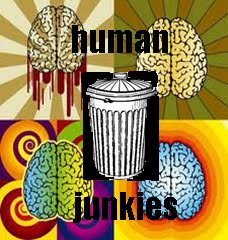As a young scholar, I traveled the world in search of what is a 21st century human. What I found was that we all share concerns over the abuse of technology. One of the students I interviewed in class stated, “Technology is tearing ourselves from how God intended us to be.” In addition, three out of three stakeholders indicated that they feared the loss of emotions. They came to this conclusion by examining our emphasis in the belief that time equals money. The IMC teacher indicated that she noticed the lack in emotions from adolescents from our generation; “we were becoming robots, who idolized logical thinking over emotions and justice.” Another interesting belief that a fellow Caribou worker brought up was that society is to blame for our conformist beliefs. Teachers have been enforcing the idea that all adolescence should be individuals. However, this lesson has caused us to conform unintentionally, since there are no original beliefs. On the other hand, all three stakeholders shared different beliefs towards what is most important in art. My friend indicated that she disliked realism and believed that abstract art is the only style of painting she appreciates. She indicated that abstract art allows us to imagine and feel multiple emotions, rather than being forced to think in a certain way. Furthermore, the IMC teacher valued Belle Opoque art (18th century painter). She indicated that technique and relativity was most important to her and that painters such as Andy Warhol are “what is wrong with art.” My final interviewee discussed the importance of realism over any other aspect of art. She had a linear perspective and believed that art can only exemplify technique and realistic views. Overall everyone had similar views, besides my last interviewee who had an extremist view towards what art is and should be.
Overall, after interviewing three highly intellectual stakeholders, I inquired multiple perspectives on what a true 21st century human is. Even if we differ on what art is considered all three illustrated that they had to express a higher meaning, than what the artist exemplifies. Other than having differences in preference of art, most stakeholders believed that technology was a good and bad concept. Technology has given us better living conditions but may have also damaged our lives indirectly. Two out of three stakeholders believed that society was digressing due to our lack of emotions and selfish attitudes. In addition, we are more disrespectful towards our past generations and are slowly losing our human aspects. As humans of this generation, we lack in originality and are forced to believe that money creates happiness. However, this ideology proves false, since studies show religious peace, hard work, and pride determines happiness. In conclusion, the 21st century human is increasing drastically in technology, but is slowly digressing from what makes us a HUMAN.


No comments:
Post a Comment